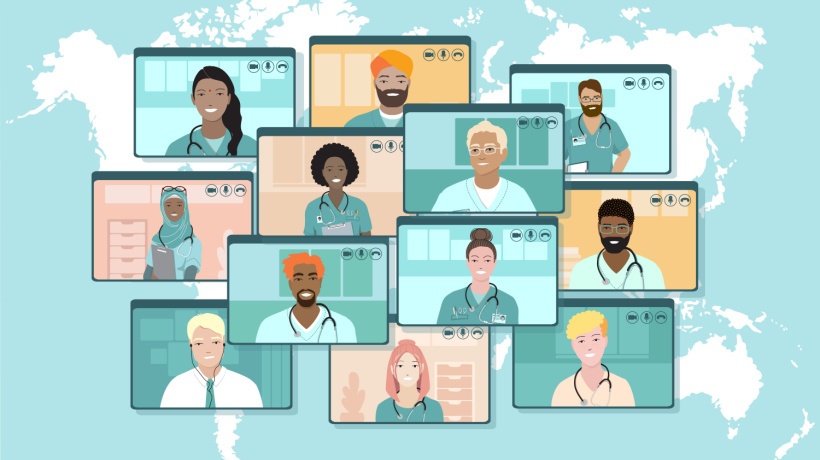The Role Of eLearning In The Healthcare Industry
Training is almost universally a requirement for nearly every industry and profession. But few fields require as much training as healthcare does, and for good reason—medical practitioners are in charge of other people's lives and well-being. An effective training method for healthcare professionals is online learning. They can learn at their own pace and in their own time, thanks to it. Even better, eLearning courses can simultaneously accommodate a wide range of learning styles. These benefits are expected to drive eLearning's global market to $325 billion by 2025. Learn how your healthcare staff can be trained quickly, using online training and Learning Management Systems (LMSs).
What Advantages Does eLearning Provide For A Health And Social Care Course?
1. Advanced Analytics For eLearning
Utilize your online Learning Management System to gain data-driven insights into how engaging and effective your training is during the online health and social care courses. Track indicators like the percentage of courses completed and the average time required, then use this data to identify trouble areas. Address issues and modify training to boost worker performance.
2. It Is Possible To Learn Anytime And Anywhere
When compared to a traditional instructor-led learning environment, eLearning offers far more freedom. That 51% of respondents favor self-led online training is not surprising. Learners can adapt training to fit their schedules. Moreover, students can do it in a location that is convenient for learning, rather than needing to travel to an office or off-site location.
Have A Clear Understanding Of Learning Management Systems For eLearning In Healthcare
To implement eLearning, healthcare facilities will need a Learning Management System. Online courses can be uploaded, stored, used, and kept organized in one place with the help of an LMS. Since everything is digitally saved in the cloud, you may also access and update the healthcare courses and instructional resources from a distance. You may use badges to make learning more engaging and track performance with the correct LMS. With the help of these improved features, it is now possible to maintain training that is interesting and motivating for staff members to learn and perform better.
The Importance Of Choosing The Best Learning Management System
Keep in mind that no two LMS platforms are identical. Find an LMS that meets your demands both now and in the future, rather than one that does everything:
1. Choose An LMS With Proper Support
If we lived in an ideal world, any technology implementation would go smoothly. However, since we are aware that this is not the case, there is a risk that you will require LMS customer assistance. Training might be disrupted by any hiccups or errors. Check out the support options when evaluating LMS platforms. An LMS that provides phone support in addition to email or online chat functionality is ideal. Additional assistance, such as a comprehensive forum, can also provide a lot of value.
2. Look Out For Sophisticated Reporting And Analytics
The majority of LMSs offer detailed analytics on which users are finishing courses, whether people are leaving at a specific point, and other information. Future course design may be influenced by this knowledge, allowing for better training in the future. You should look for LMS platforms that offer robust reporting and analytics so you can track and enhance staff training.
3. Find Out What Your Current Training Challenges Are
Decide what you want to achieve before you begin looking for an LMS. List the difficulties you are now facing in training and education, along with your plans to use an LMS to get over them. As you consider your options, keep these objectives at the top of your mind. If your staff finds it difficult to stay interested in training, for instance, you'll want an LMS that enables interactive courses and perhaps gamification.
4. Prioritize HIPAA Compliance And Security
Security is essential, particularly in the healthcare sector. According to the Healthcare Information and Management Systems Society's cybersecurity survey in 2019, cybersecurity initiatives might be put at risk by complacency about cybersecurity measures. In other words, putting off data security can come back to bite you. The last thing you want is an expensive fine for not using the necessary security, especially in light of the strict HIPAA Omnibus requirements that prioritize adequately securing information. Any LMS platform you use must have server-side security. In addition, check to see if the LMS you're considering provides extra security safeguards, like two-factor authentication or password encryption.
Editor's Note: Visit eLearning Industry's Best LMS For Healthcare, Medical & Telemedicine list to evaluate the top LMS solutions for your healthcare employees.








